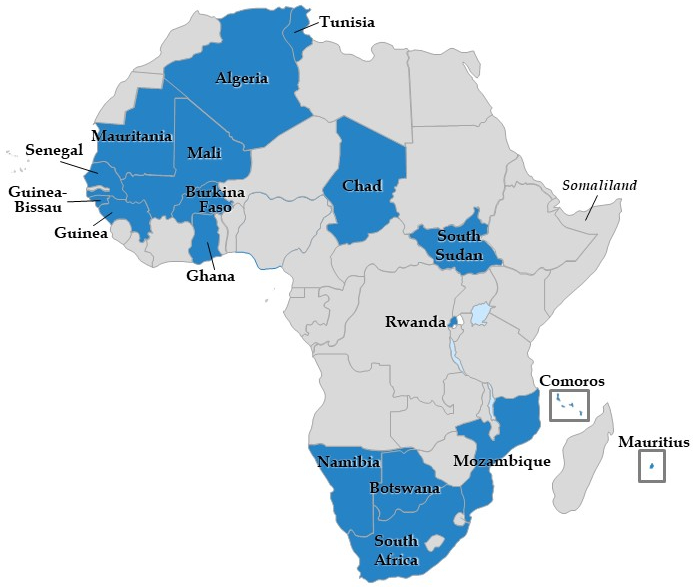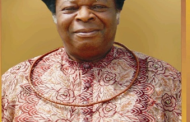With a record number of 50 countries across the world holding crucial elections in 2024 alone, it is not surprising if the world reactivate interest in this much contested concept. This is more so in Africa where former leaders like Chief Olusegun Obasanjo are saying democracy as presently operationalised is alien to the continent.
Responding to Chief Obasanjo, Cde Adams Oshiomhole, a Nigerian senator and a former national labour leader, argued that Obasanjo only became aware of the foreignness of democracy after Obasanjo’s candidate (in the last presidential election in February 2023 in Nigeria) lost the election.
But the Institute of Cultural Studies at the Obafemi Awolowo University, Ile-Ife in Nigeria may not share Oshiomhole’s position as it is set to further interrogate democracy.
It has set February 14th, 2023 as the day when to do this, with the topic “The Illiberal Foundations of Contemporary Democratic Order in Africa: Why Democracy is in Recession”. The event is part of the Centre’s WEBINAR SERIES.
Leading the impending conversation would be Professor W. Alade Fawole of the Department of International Relations at Obafemi Awolowo University, Ile-Ife. While Professor Abayomi Olajompo Akinyeye, (FNAL) of the Department of History at the University of Lagos will chair the occasion, Prof. Chijioke Uwasomba of the Department of English at Obafemi Awolowo University, Ile-Ife will be the discussant. An event bringing into interaction a Historian, an International Relations scholar and a Literary philosopher could turn out a very intellectually explosive but productive conversation in a highly troubled country, Nigeria.
An Abstract from the Centre says that the liberal democratic system being practised in Africa germinated and grew from the seed of colonial authoritarianism, and thus cannot escape its fundamental foundational defects. It adds that the strength and structural integrity of any edifice to perform as expected depends largely on the strength and solidity of its substructure or foundation but that liberal democracy in Africa is of defective foundation and weak tensile strength, “because it is impossible to overcome its grave substructural defects and abnormalities, hence its contemporary descent into illiberalism and authoritarianism across the continent is merely a return to its default setting”.
The abstract goes on to assert that the categorical implication is that any expectation that contemporary democratic order in Africa can still thrive well on these built-in substructural deformities is essentially futile and unrealistic, pointing out that even the post-Cold War era “re-democratization” coming after a spell of military dictatorships and authoritarian rule, is hardly more than a Western hegemonic project intended to control the political fortunes of African countries”. The proposed paper will interrogate the origins and foundations of liberal democratic governance in Africa to underscore its pervasive non-performance and regression.
According to the abstract, the presentation seeks to provoke rigorous intellectual disquisitions on the varieties of governance systems and their suitability and adaptability for the African reality, whether what is required is liberal democracy, or development that ensures peoples welfare and guarantees the good life for the majority, its own words. So, the fireworks has already begun even from the Abstract.
The paper presenter has an interesting diversity of background that makes him an interesting voice to listen, what with undergraduate training in Political Science from the Ahmadu Bello University, Zaria from 1974 – 1978 (the heydays of that Department in the annals of ABU, Zaria); then Master of Science (M.Sc) in International Relations from the University of Ife (now Obafemi Awolowo University), Ile-Ife, (1981 – 1983) before heading for The George Washington University, Washington D.C. (USA) from 1985 – 1990 for a Master of Philosophy (M.Phil) and a Doctor of Philosophy respectively in Political Science, specializing in International Relations.
He has been teaching at the Obafemi Awolowo University, Ile-Ife, rising from Assistant Lecturer in October 1983 to full Professor of International Relations in October 2003. Aside from lecturing, he bit the activist bug too, serving as Secretary of the Academic Staff Union of Universities (ASUU) from 1995 to 2000. He has been Head, Department of International Relations (2006-2008); Member of Senate from 2003 to date; Dean, Faculty of Administration, (2008-2010); member, Governing Council, Obafemi Awolowo University, Ile-Ife, (2003-2007); Chairman, Standing Committee of Congregation, (2003-2007) and Chairman, Joint Council-Senate Panel on the Review and Harmonization of Statutory Committees in the University; etc
Outside the Obafemi Awolowo University, he has served as Visiting Lecturer and resource person across the world, particularly at the University of Ibadan; the African Studies Centre, and University of Leiden, Netherlands; the Legon Centre for International Affairs and Diplomacy (LECIAD), Legon, Accra, University of Sierra Leone, Freetown; Resource Person and Editor, Council for the Development of Social Science Research in Africa (CODESRIA), Dakar, Senegal. The member of the Nigerian Political Science Association (NPSA), Nigerian Society of International Affairs (NSIA), African Association of Political Science (AAPS), International Political Science Association (IPSA), Society for International Relations Awareness (SIRA) has attended and delivered scholarly papers at numerous academic conferences, seminars and workshops across Nigeria, and in several countries in Africa, Europe and the Middle East. It might be mundane to say he is highly published, both in specialised or academic journals and in the popular press.
Those salivating to hear him pontificate on democracy have up to 3.30pm (WAT) to wait before accessing that, through in-person attendance at the Faculty of Arts’ Board Room, Humanities Block II, OAU, Ile-Ife or through this zoom link: https://us06web.zoom.us/u/kbC1h5u8hN




























